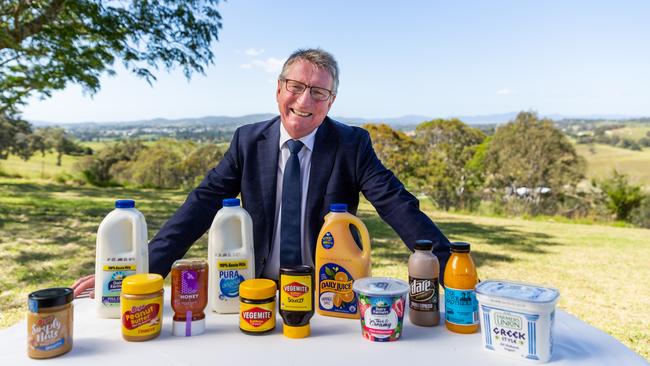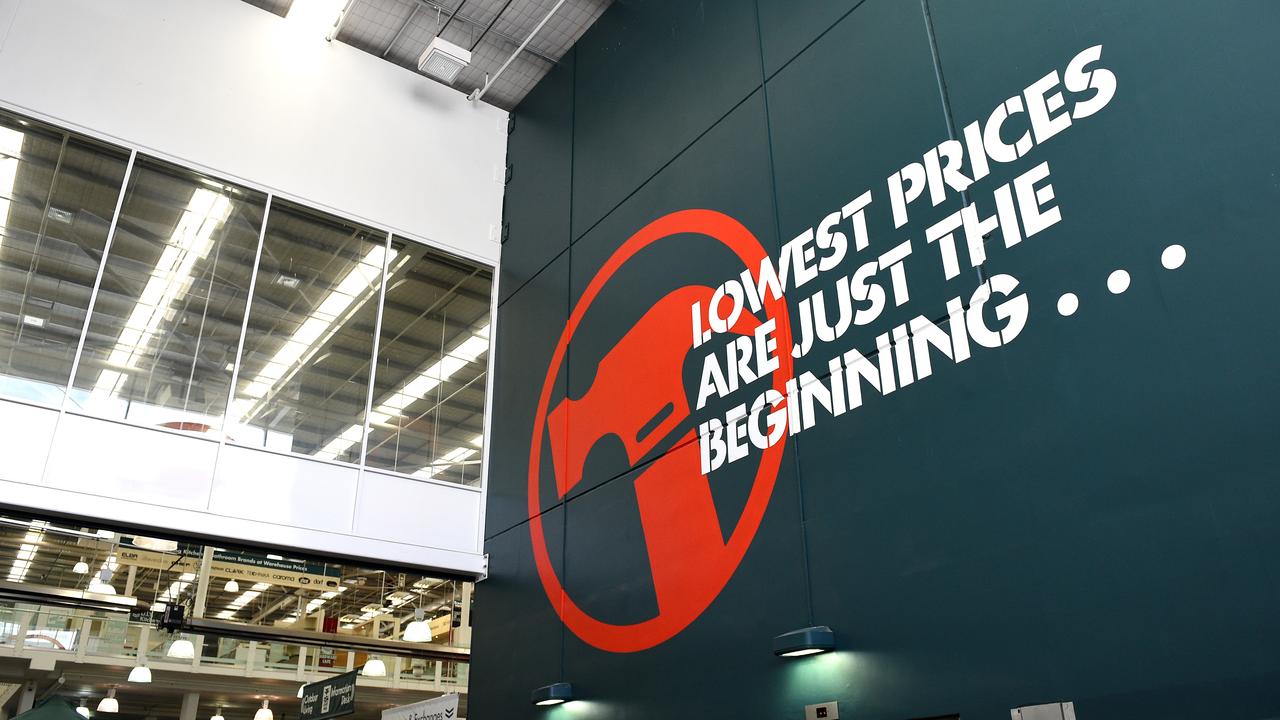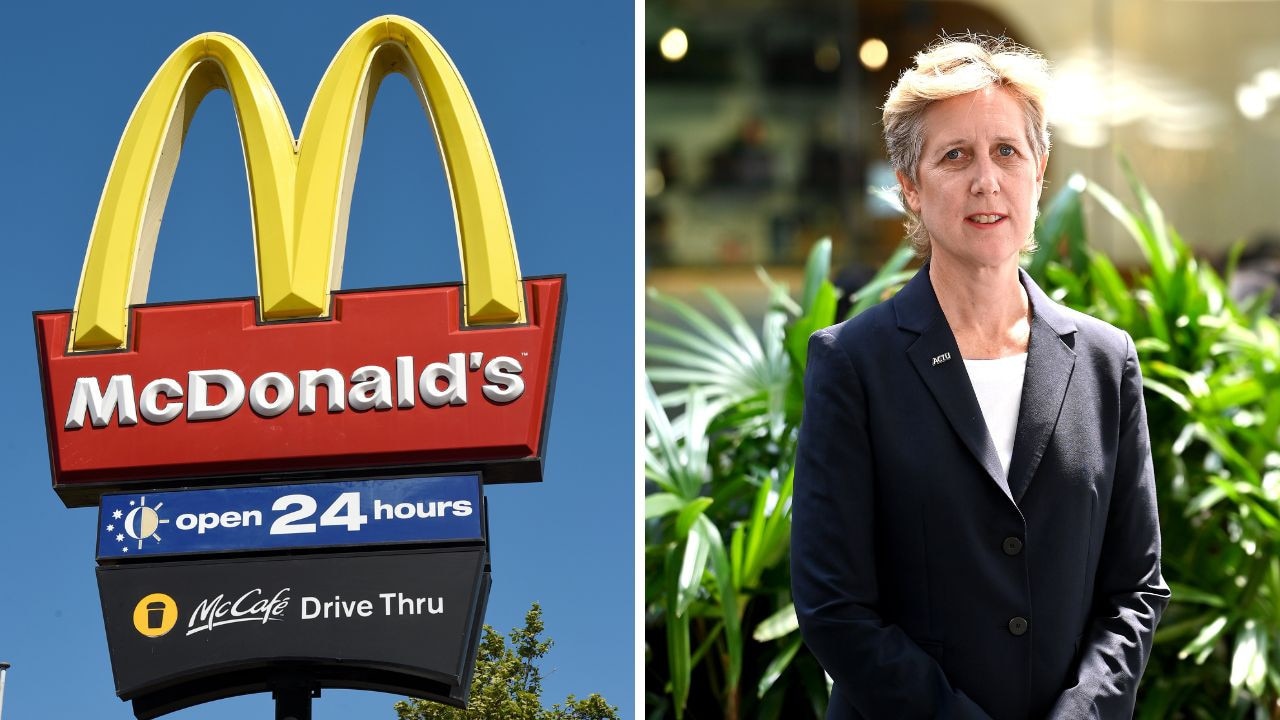Bega braces itself for trademark ruling in Fonterra fight as profit more than doubles
Bega now has a more profitable product mix, fuelling a doubling of net profit, but is yet to shrug off its legal troubles.

Bega Cheese has successfully transitioned itself from a commodity company to higher value brand builder but it is facing a handbrake on fully reaching its goal.
On Thursday the Victorian Supreme Court is set to decide on a 20-year-old agreement between Bega and Fonterra, the world’s biggest dairy exporter. The deal, struck in 2001, granted Fonterra the exclusive use of Bega’s trademarks on natural cheddar cheese, processed cheddar cheese, string cheese and butter in Australia.
So Bega thought it was within its rights to slap its logo on peanut butter jars when it acquired most of Kraft’s Australian food operations, including Vegemite, for $460m in 2017. After all, Fonterra wasn’t within cooee of peanut butter.
But that didn’t stop the New Zealand dairy giant calling in its lawyers.
Fonterra believes it controls the Bega brand in Australia - even on products Fonterra doesn’t produce - limiting Bega from expanding into new categories and capitalising on its own trademark. In its view, Bega using its trademark on products unrelated to cheese has the potential to dilute the brand and Fonterra’s investment in it over the past two decades.
But Bega executive chairman Barry Irvin says Bega has evolved significantly since it struck the licensing agreement, and had to morph from being just a cheesemaker to brand builder to survive.
“We have got a lot of capacity in the market and unless you can differentiate yourself and find value, you will find it very difficult to compete for milk. In the end it doesn’t matter how good your facility is, if you don’t have volume going through it, you’ll find yourself in difficulty,” Mr Irvin told The Australian.
“There are occasions where pure commodities can run to your advantage but they are rare, so having the ability to move to commodity on occasion but also make sure you can support brands and higher value products is what we have been endeavouring to do.”
The success of the strategy to date is reflected in Bega’s half year financial results. Despite revenue falling 5 per cent to $708m, net profit 154 per cent to $29.7m.
Mr Irvin says this is because the company now has a more profitable product mix, which includes Vegemite, peanut butter, and now fresh and flavoured milks and juices after it acquired Lion Dairy and Drinks for $534m last year.
Investors welcomed the result, with Bega’s shares surging 6.2 per cent to $6.15 compared with a 0.9 per cent fall across the broader share market.
“The strategy we have been working towards over the years, really in this half you can see the benefits coming through where you can see while revenue is down where we have got growth is in those high value parts of the business,” Mr Irvin said.
“We definitely wanted to go down the brand path but we didn’t feel we had the capability in terms of managing large brands and understanding of the retail market. We didn’t see it in dairy but we saw it in other foods and quite frankly the capability that was delivered to us in the acquisition of Vegemite and peanut butter etc gave us the confidence and scale to think about the Lion acquisition.
“And I might say the same about our Fonterra arrangement from the point of view that it’s an arrangement we put in place 20 years ago. It’s been very good for our company for a great many years and we therefore have to be a little bit philosophical - what I would hope is the occasional argument and then we move on with life.”
In regard to the Fonterra agreement, Mr Irvin said it was “very specific”.
“And as the owner of the brand we retain the rights to use it as we see fit, obviously protecting the value of the brand. They recognised that they only had rights on cheese - and they know that that can’t use the brand on other products but they equally go nor can we.”
But Fonterra Australia managing director René Dedoncker said Bega had been compensated under the licensing agreement, with the New Zealand company supporting its brand even before formation of the deal.
“Since the 1980s, Fonterra and its predecessor Bonlac have nurtured and built the Bega brand, and supported Bega Cheese Limited to grow and provide good returns back to its farmers, shareholders and community,” Mr Dedoncker said.
“When we entered into the current arrangements in 2001, Bega Cheese Limited received a significant payment and the right to substantial ongoing royalties from Fonterra. Fonterra was granted a sole and exclusive licence to protect its investment.
“We consider Bega Cheese Limited’s move to use the brand for a range of unrelated products a direct breach of our agreement and inconsistent with the reputation of Australia’s favourite cheese brand.”
Bega maintained its leading position in spreads with a 30.9 per cent value share - a 13.6 per cent increased on the prior comparative period. Its Simply Nuts brand grew to a 21.2 per cent share of the natural peanut butter segment, growing 104 per cent on the prior comparative period, with the launch of the larger 650 gram jar.
Meanwhile, core Bega peanut butter continued to grow, rising 15.8 per cent, and now holds a 82 per cent share of total core peanut butter.
Bega will pay an interim dividend of 5c a share, fully franked, on March 26. Mr Irvin said this “is consistent with our previous dividend and reflects prudent cash management as we integrate Lion Dairy and Drinks into the group.”



